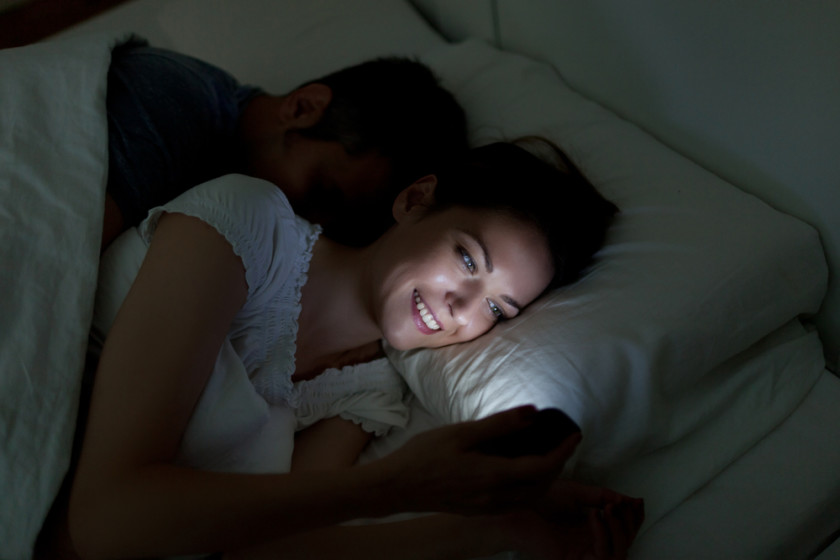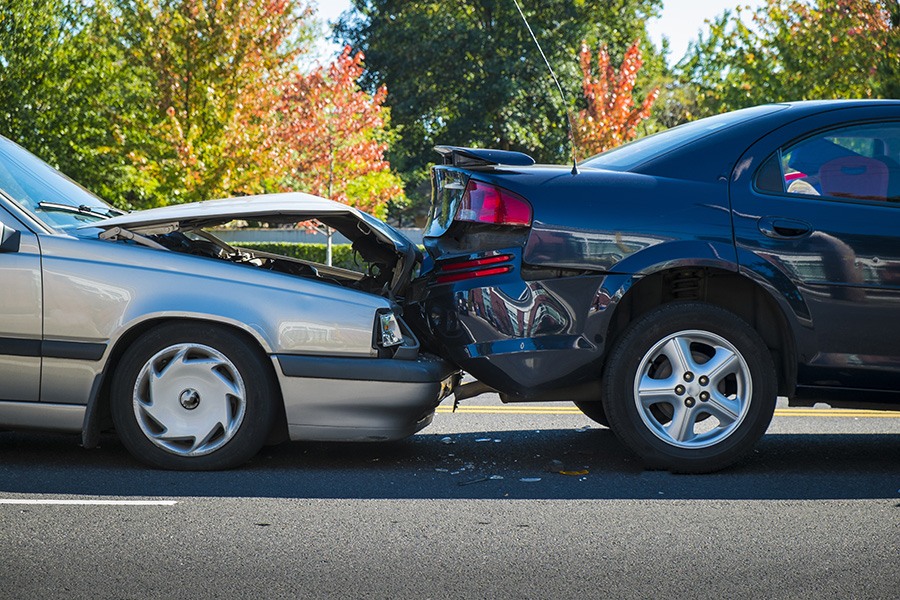We all know that smartphones can wreak havoc with our down time. Whether you’re addicted to checking for messages at 3 am or your smartphone is actually in your hands until 3 am every night, there’s one thing a lot of people don’t know – your smartphone could be causing you insomnia.
How Can My Smartphone Give Me Insomnia?
Studies at Harvard Medical School show that specific wave-lengths of light – such as those emitted from smartphones, tablets and other device screens – can suppress the production of melatonin by our brain. Melatonin is the sleep-wake hormone that regulates our body’s circadian rhythm according to the availability of light. That means when the sun goes down and it’s evening, melatonin is released primarily by the brain’s pineal gland, making you tired and sleepy.
At least, that’s the way it’s supposed to work. But a guy by the name of Thomas Edison and his buddy Joseph Wilson Swan came along and spoilt it all for us by patenting the carbon-thread incandescent lamp, more popularly known as the light bulb. As artificial lighting became more popular, our evenings grew longer and we started going to bed later.
With the advent of technology, the problem worsened, eventually making it possible for us to lie down in bed and still be “connected” via our smartphones. This resulted in something called blue light, which is emitted by most device screens including smartphones, tablets, laptops, PCs and even television sets.
The blue light emitted by these device screens acts much like a light bulb. The brain doesn’t know the difference between natural and artificial light, so as long as it’s exposed to any bright light, it thinks it’s still daytime and therefore delays the production of melatonin.
In a nutshell, more light equals less melatonin equals insomnia.
How Bad is the Problem?
It’s far more severe that we would think. For the average adult, getting anything less than 8 hours of sleep can lead to loss of alertness during the day, slower reaction times, daytime drowsiness, lack of concentration, weakened memory and many other problems. And it’s expensive, too. A study done in 2013 showed that $31.1 billion was spent on insomnia-related workplace accidents.
The U.S. Department of Transportation says that around 1,550 deaths are caused every year by drowsy drivers, and that number in on the rise.
Decades ago, insomnia used to be a rare condition. Today the story is very different. According to the Centers for Disease Control and Prevention, some 50-70 million US adults suffer from some sort of wakefulness or sleep disorder related to insomnia. 70 million is more than 20% of the country’s population of 319 million. And that’s just the diagnosed cases. Unreported cases could actually push that figure closer to 100 million, or a third of the population.
So, one in three people may be suffering from some form of sleep disorder, and a huge chunk of that can be attributed to blue light.
Here’s What To Do if your Smartphone is Causing Insomnia
Of course, we can’t expect you to do away with your smartphone at night, so here are a few tips you can do to reduce the effect that blue light has on your body, brain and sleep.
Install a blue light app on your smartphone
One of the best I’ve seen is an app called f.lux, and it’s available for both mobile and desktop devices. What it does is to tweak your screen’s brightness in a way that the more harmful spectra of light are suppressed. It won’t cure your insomnia, but it may help you sleep better since it allows the body to produce the melatonin you need in order to get sleep.
Get a blue light screen filter
Another option is to buy and put a blue light filter on your devices. It’s basically a thin film that goes on top of you device’s display. The better ones, such as OcuShield, will let 95% of visible light pass through, but will filter out the spectra that could be causing your insomnia.
Try a melatonin supplement
This is a little more drastic course of action, but natural melatonin supplements such as Sprayable Sleep – a gentle melatonin spray – can help you compensate for the melatonin that your body isn’t producing enough of. It’s a much safer alternative to pills.
Set a rule for device use
The best way is, of course, prevention. If you can set a cut-off time for using smartphones or tablets before bedtime, you should be able to sleep much better in a matter of days. The best rule is to not use any electronic device or watch TV at least two hours before you hit the hay. That way your body is encouraged to produce the melatonin it needs to fall asleep naturally.
These methods all work differently for different people, but each of them has its own benefits. You can also try using eye masks or even use blackout curtains in your room.
However, if your insomnia is not directly related to blue light exposure, then a melatonin supplement could be the best solution for you. Do check with your doctor in case you are pregnant or currently suffering from any other condition that would conflict with melatonin use, but for the average adult over the age of 18, melatonin supplements have been relatively safe for many decades.
If the problem is with your smartphone, then what we’ve discussed above should help you sleep better at night and be more productive during the day.
Thanks for reading our work! On Apple News please favorite the 1redDrop Channel, and do bookmark 1redDrop.com to keep tabs on the hottest, most happening tech and business news from around the world.



